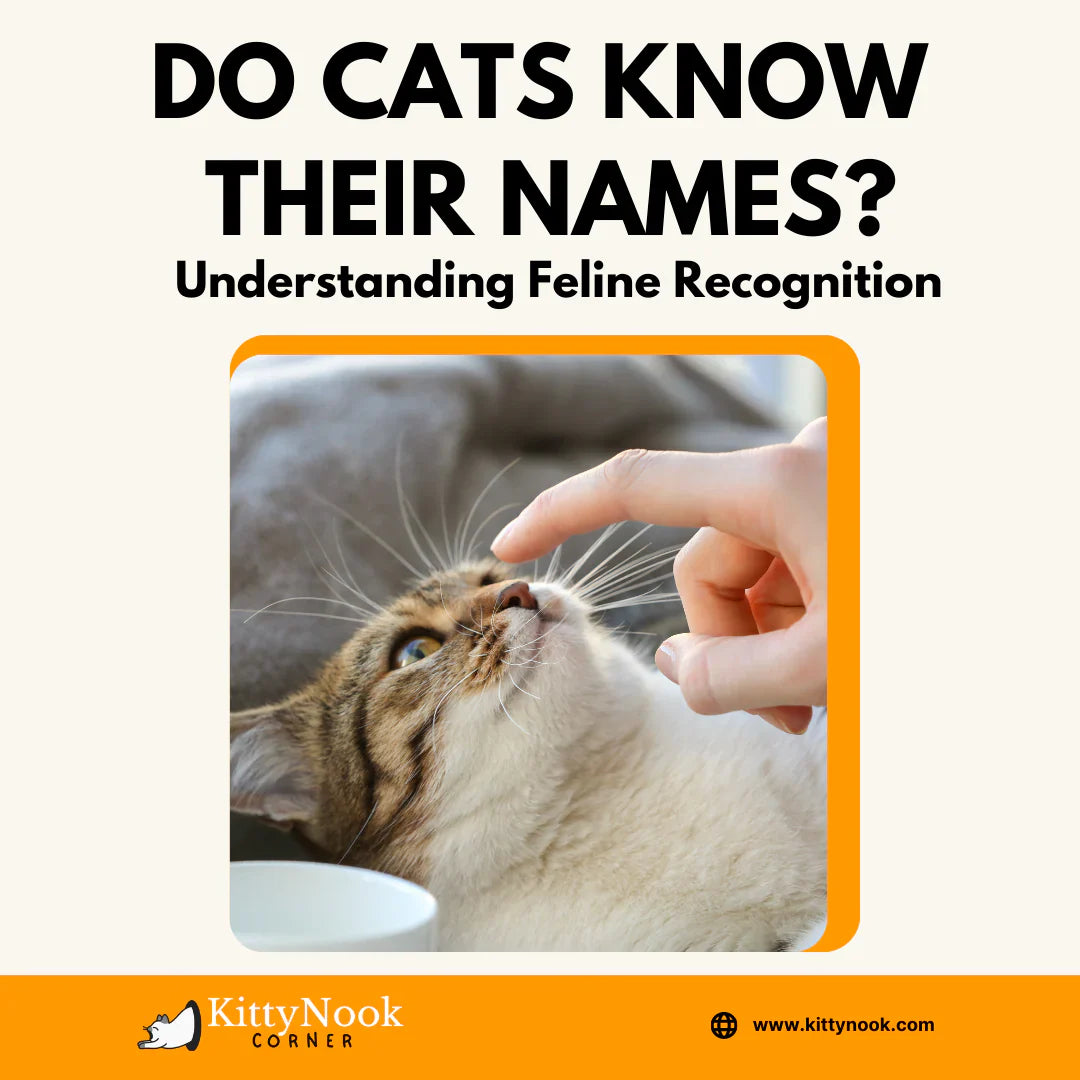Cats have long mesmerized human hearts with their mystical and independent nature. One of the intriguing questions that cat owners often ponder is whether their feline companions recognize their names. While cats may not come running like dogs at the sound of their names, there's more to this question than meets the eye.
This article delves into the fascinating world of feline cognition and helps us understand how cats recognize their names and why they selectively respond to our calls.
Do Cats Know When You Say Their Name?

Yes! Contrary to popular belief, cats do have the ability to recognize their names. Cats can also identify and differentiate their name from other family pets' names. This acknowledgment is most likely a result of positive reinforcement or a feline's association of their name with attention, food, or play.
However, their response might differ from the enthusiastic tail-wagging you'd expect from a dog. Cats are known for being selective in their interactions, and their reaction to their name depends on several factors.
What Do Cats React To?

Cats are brilliant and intelligent. Paired with outstanding ears that can move nearly 180° and independently of each other, felines can listen to and respond to more than just their names.
1. Cats React to Their Owners' Voices
If it looks like your cat conveniently responds to your voice but ignores your roommate, you could be on to something. Cats can recognize and remember unique vocal patterns. This means that a feline may react to the calls of a family member than an unacquainted visitor.
2. Cats React to Intonation
The tone we use when calling a cat's attention can influence how much attention they pay us. Our intonation can be related to a feeling—like positive or negative outcomes. All animals, not just cats do this.
3. Cats Can Recognize Words Such as 'Dinner,' Supper,' 'Treats,' and 'Bed'
We can not say for sure what cats understand or don't understand. However, we know they are intelligent animals that can use context clues to adjust their behaviors. For example, if you routinely announce "dinner!" and feed your cat a meal, they'll associate "dinner" with food. A different association, of course, is being made by saying the words like "vet," "car," or "carrier."
Does My Cat Know I'm Its Owner?

Cats may not display loyalty and attachment like dogs but can form strong bonds with their owners. Cats become familiar with their human companions through daily interactions, feeding routines, and shared spaces. Cats often show their attachment by rubbing against you, sitting on your lap, or purring when you're around. This behavior suggests that they recognize you as someone they can trust and therefore feel comfortable with.
Why Is My Cat Ignoring Me?

Unlike dogs, cats are independent by nature. This is clear at times when they ignore us and when they acknowledge their name being called. You can test if your cat knows their reputation by calling them without added signals. If they react by orienting their body towards you, it's a sign that they know their name.
Teaching Your Cat Their Name

One way to teach a cat or kitten their name is to relate it with positive experiences, like calling them before giving treats, toys, or chin rubs.
Clicker training can be useful, especially in homes with numerous cats or kittens. The goal is to help your cat understand that their name has importance, and when they hear it, it means you want their attention. Say your feline's name and promptly click and reward them when they take a look at you. Name-training cats with each other may help them distinguish their names from each other.
How Long Can a Feline Remember a Person?

Cats have a surprisingly great memory when it concerns people. They can keep people in mind even after prolonged periods of separation. Some studies suggest that cats can recall their owners after being apart for several months. This memory retention may result from their keen senses, including scent recognition. Cats rely a lot on their sense of smell to recognize people, locations, and other animals, making their memory of individuals remarkable.
Do Cats Recognize Their Owner's Face?

While cats do not depend as much on facial recognition as humans do, they can still distinguish different faces to some extent. Felines are more likely to remember your smell and voice than your facial features. They might also associate you with positive experiences like feeding or playtime. So, even if your feline doesn't instantly recognize your face, it can still recognize you through a mix of sensory hints.
Conclusion and Key Takeaways

Cats may not react with the same enthusiasm as dogs. Still, their capability to recognize their names and owners is a testament to their intelligence and versatility. Remember that every feline is unique, and their behaviors can vary. So, next time you call your cat's name, and they flip an ear, rest assured that they acknowledge your presence in their own way.





















